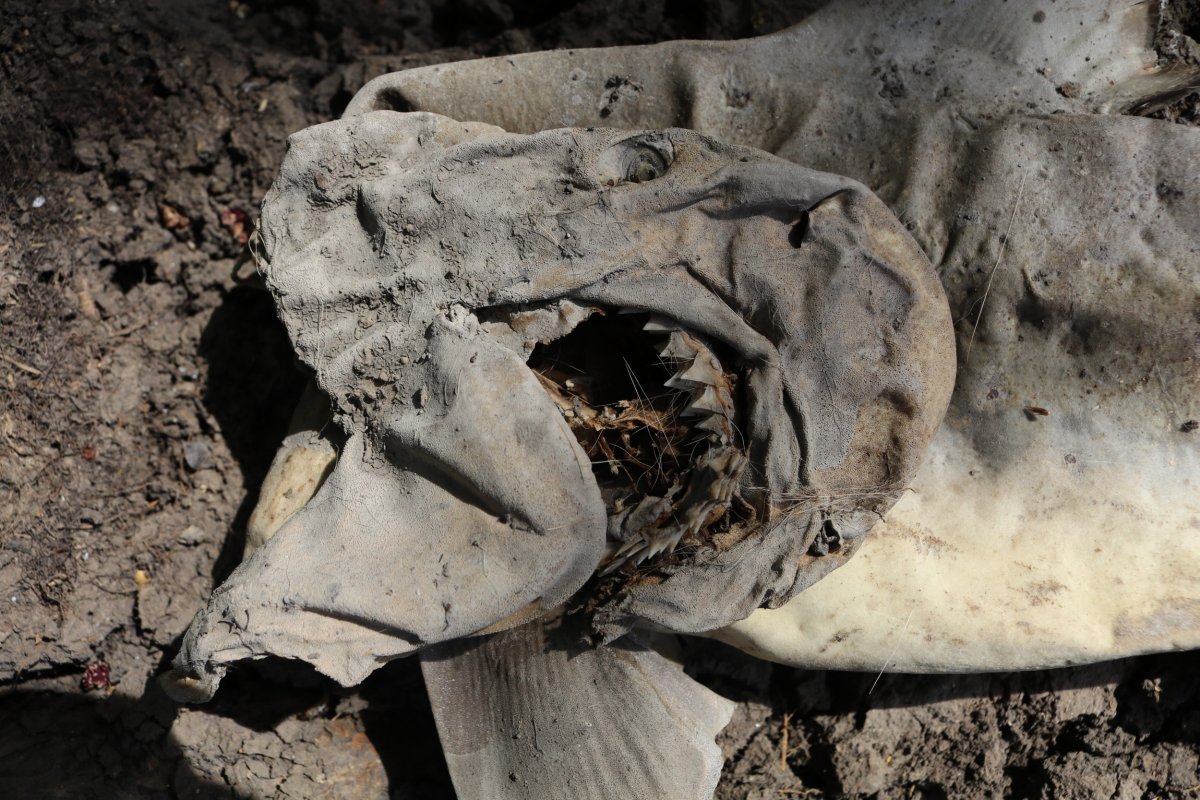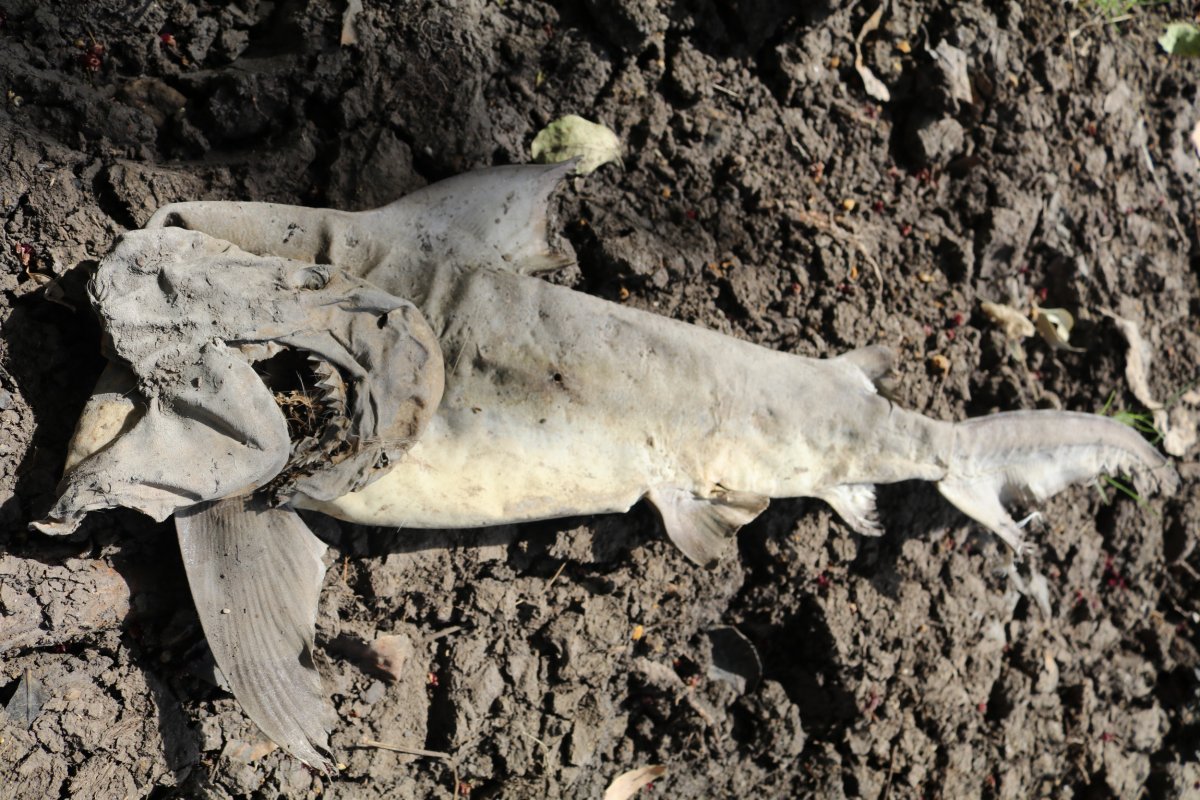A "baked baby bull shark" has been found over 30 miles from the nearest coast in Australia's Northern Territory.
Dr. Leonardo Guida, a shark scientist with the Australian Marine Conservation Society, said the find was an example of "nature at her most extreme," saying he had never seen anything like this before.
The bull shark was found in September along the Daly river region on some muddy flats of a billabong that was drying up, Guida told Newsweek. He estimates it had been there a few weeks when it was found, saying temperatures in the region at the time were around 95 degrees Fahrenheit.
A billabong is an isolated pond left over after a flood or when a river changes course. In Australia, billabongs form seasonally, filling with water but then drying up as temperatures rise.
Guida said billabongs can dry up very quickly if they are shallow.

He posted the pictures of the bull shark to Twitter, saying: "You know life on earth is extreme when you find a baked baby bull shark in a remote, isolated & shrinking billabong that's km's from the main river & some 80km upstream from the coast."
Bull sharks spend the first few years of their lives in rivers in tropical and subtropical parts of the world. They move out to sea as they get older, but return to river systems to give birth. They can exist for long periods in freshwater.
"As the floodwaters recede from the wet season rains, some bull sharks—like this one—don't make it back to the main river in time and can get trapped in billabongs, having to wait for the next wet season to bring the floods," he told Newsweek. "Unfortunately this bull shark chose the wrong billabong."
Guida said that based on its size, this bull shark was one year old at most. They are between 1.5 and 2 feet when they are born and can reach up to 11 feet when fully grown.

Finding one in this condition, he said, was unusual. "Any other time I've seen any kind of shark dried up it's either been decomposing on a beach somewhere or in a market." he said. "When you think of how remote and far from the coast this bull shark is, you realize it's quite an amazing example of nature at her most extreme in nearly every sense."
Bull sharks are listed as vulnerable by the IUCN Red List and their population is decreasing. The biggest threats facing them are commercial and recreational fishing. The Australian government also permits their killing as part of protection programs for bathers.
However, the species is also at risk from climate change and human influence on the landscape. "In northern Australia in particular, there are currently proposals to extract floodplain waters to support farming and mining industries," Guida said. "Alterations to water flows and regimes, compounded by the effects of climate change, are going to ultimately affect how much and for how long suitable habitat is available."
Uncommon Knowledge
Newsweek is committed to challenging conventional wisdom and finding connections in the search for common ground.
Newsweek is committed to challenging conventional wisdom and finding connections in the search for common ground.
About the writer
Hannah Osborne is Nesweek's Science Editor, based in London, UK. Hannah joined Newsweek in 2017 from IBTimes UK. She is ... Read more
To read how Newsweek uses AI as a newsroom tool, Click here.








